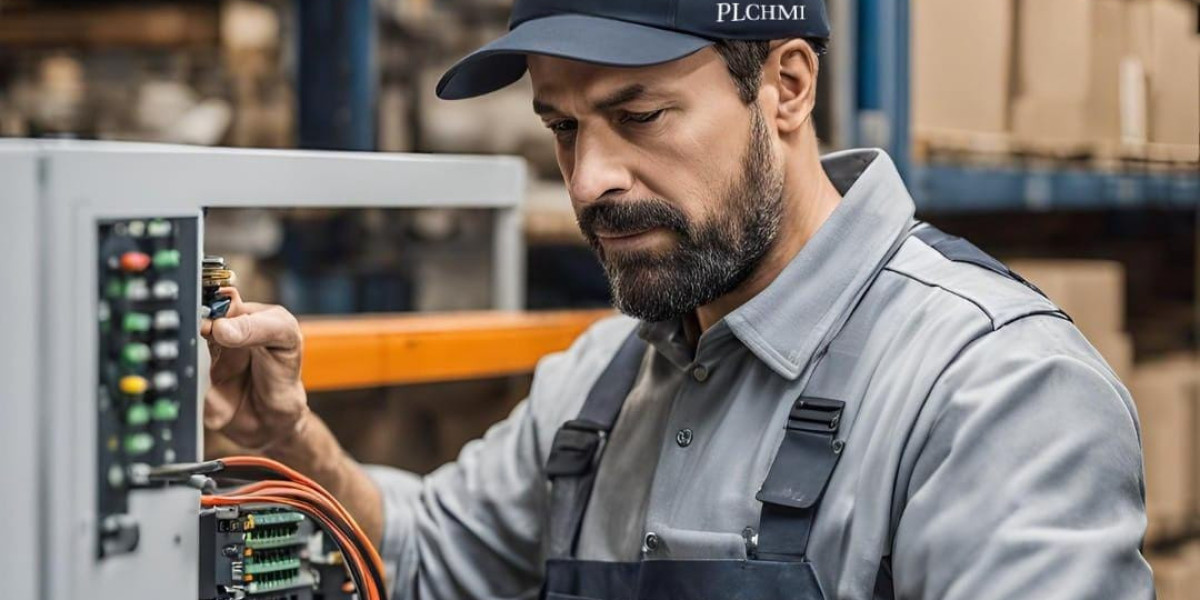Introduction
In a world driven by automation, Programmable Logic Controllers (PLCs) have revolutionized industries, making complex systems run smoothly and efficiently. From manufacturing plants to everyday utilities, PLCs silently control various automated processes, ensuring accuracy and safety in tasks that once required human intervention. But how exactly do PLCs make our lives easier? Let's dive in and explore their significance in both industrial and daily applications.
Understanding What PLCs Are
A Programmable Logic Controller (PLC) is essentially a robust digital computer that monitors inputs and outputs, making decisions based on its programmed logic to control machinery and processes. Originally designed for industrial settings, PLCs have become critical components in automation.
The Role of PLCs in Industry
PLCs are pivotal in various industries such as manufacturing, oil & gas, food processing, and utilities. They control everything from conveyor belts and machinery to complex processes like chemical mixing. Without PLCs, these operations would require manual labor, leading to inefficiencies and higher operational costs.
How PLCs Help Optimize Efficiency
One of the greatest advantages of PLCs is their ability to work continuously, reducing downtime and human error. They automate repetitive tasks with precision, meaning industries can produce higher volumes of products in less time, thus increasing productivity.
Ensuring Safety with PLCs
Another way PLCs make our lives easier is by improving workplace safety. In hazardous environments like chemical plants, PLCs control processes remotely, minimizing human exposure to dangerous situations. For instance, they regulate temperatures, pressure levels, and flow rates to prevent accidents.
PLCs in Daily Life
While PLCs are more prominent in industrial settings, they have also found their way into everyday life. Think about traffic lights, elevators, and even some home automation systems—PLCs are at the heart of these systems, ensuring smooth and reliable operation.
Streamlining Traffic Control
Imagine the chaos without synchronized traffic signals. PLCs automate the timing of traffic lights, optimizing the flow of vehicles and pedestrians. They adapt to changing traffic conditions, reducing congestion and accidents in urban areas.
Automating Home Systems
PLCs are also making smart homes possible. They can control lighting, heating, and security systems, turning your home into an automated, energy-efficient space. The flexibility of PLCs allows homeowners to program specific actions, like turning off the lights when no one is home.
Customizability of PLCs
One of the most compelling reasons why PLCs make life easier is their flexibility. Unlike fixed automation systems, PLCs can be reprogrammed for different tasks without significant hardware changes. This adaptability makes them invaluable for businesses that need to update or modify their production lines frequently.
Cost-Effective Automation
Since PLCs can handle multiple tasks, companies save money by reducing the need for extra hardware or manpower. Additionally, their durability and ability to work in harsh environments mean less maintenance and fewer breakdowns, which contributes to cost savings in the long run.
Real-World Example: The BMEH584040S Modicon M580
A great example of how PLCs improve automation is the BMEH584040S Modicon M580, a high-performance PLC designed for complex industrial processes. With its cutting-edge architecture and advanced communication capabilities, it allows seamless integration into existing systems, improving both productivity and safety.
Discover more about the BMEH584040S Modicon M580.
The Future of PLCs
As technology evolves, PLCs will only become more sophisticated. With the integration of AI and machine learning, future PLCs will be capable of predictive maintenance, detecting issues before they arise, and optimizing processes autonomously. This will further reduce human involvement in hazardous or tedious tasks, making industries safer and more efficient.
AI Integration
AI-powered PLCs could adjust processes in real-time, reacting to unforeseen circumstances without needing reprogramming. This would lead to smarter, more resilient automation systems capable of learning from past performance.
IoT and PLCs
The Internet of Things (IoT) is another area where PLCs will likely play a crucial role. IoT integration will allow PLCs to communicate with other devices across various networks, making automated systems even more interconnected and efficient.
Conclusion
PLCs have become an indispensable part of modern life, silently automating processes that once required extensive human intervention. From industrial applications to everyday conveniences like traffic lights and smart homes, PLCs simplify complex tasks, increase safety, and boost efficiency. As technology advances, their role in automation will only expand, making our lives even easier.
FAQs
Q1: What industries rely on PLCs the most?
Industries like manufacturing, automotive, food processing, and oil & gas rely heavily on PLCs for automation, safety, and efficiency.
Q2: Can PLCs be used in residential settings?
Yes, PLCs are increasingly being used in home automation systems, controlling lighting, HVAC, and security systems.
Q3: Are PLCs expensive?
The cost of a PLC varies depending on its complexity, but over time, they offer cost savings due to reduced maintenance and increased efficiency.
Q4: How do PLCs improve workplace safety?
PLCs minimize human interaction with hazardous machinery and processes, reducing the risk of accidents and injuries.
Q5: What is the future of PLCs?
The future of PLCs involves integration with AI, machine learning, and IoT, making automation systems smarter and more adaptive.








